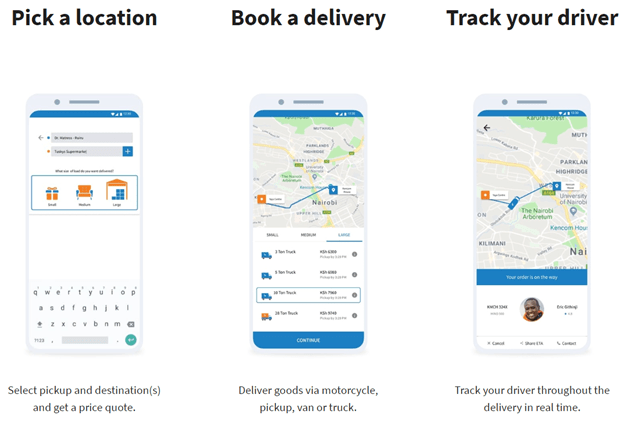Covid-19 Forces Kenyan Startup Sendy To Turn To Home Delivery
The coronavirus has forced Sendy, the Kenyan logistics startup that raised $20 million in VC funding earlier this year to turn its attention to delivery of groceries and other household items, a move slightly different from its model which is built on offering e-commerce, business and cargo delivery services to customers that include Unilever, DHL, Maersk, Safaricom and the African online retailer Jumia.

“As a Kenyan company, we cannot sit back when some are grappling with disruption of their sources of income. Our goal is to continuously innovate in ways that are impactful to those around us,” Sendy Founder and CEO Meshack Alloys said.
Here Is All You Need To Know
- Dubbed Sendy Go, the platform gives shoppers access to a wide variety of household supplies from local traders and also enables them to support families in need by matching every order made on the platform with a donation.
“We want to help shoppers buy items and get them delivered at their doorsteps thereby minimizing their movement during this time. We are also going a step further by matching every order made through the app with a donation to a family in need. Our objective is to feed 5,000 families across Nairobi for the next few months,” Alloys said.
- The family basket is composed of maize meal, rice, beans, cooking oil and soap enough to last a household of six for one week.
- Sendy Go donations will support families living in informal settlements using e-vouchers through a partnership with Sokowatch, a retail e-commerce start-up that has mapped shops across these areas.
- Sendy Go will run on Sendy’s extensive and reliable logistics network and has so far partnered with local markets and stores such as Kenyatta Market, City Market, Hardy Fresh, Sweetunda for groceries and household essentials, Goodlife Pharmacy for pharmaceuticals and personal care products, Galana Oil for cooking gas and Sandstorm for protective face masks.
- The free-to-download app has been available for Android and iOS users across Nairobi, Nakuru, Kisumu, Eldoret and Mombasa from April 30th, 2020.

Read also: Finding Customers In The Time Of Coronavirus: What Startups In Africa Can Do To Survive
A Look At What Sendy Does
Co-founded Sendy in 2015 by Kenyans Mesh Aloys, Evanson Biwott and Don Okoth, and American Malaika Judd, Sendy allows its users to move almost anything from point A to B at the touch of a button.
The company uses an asset-free model, with an application that coordinates hired drivers who own their own vehicles, while confirming deliveries, creating performance metrics and managing payment.
In Sendy’s business and revenue model, “We take a percentage of each transaction. We also provide services for drivers such as insurance, medical insurance, vehicle financing, vehicle service and fuel credits,” said Alloys.
Sendy has offices in Kenya, Tanzania and Uganda with 5000 vehicles on its platform that move all kinds of products, according to Alloys.
Reducing logistics costs for manufacturers and SMEs helps reduce product prices and makes goods more widely affordable. Sendy also provides a stable income for drivers on the platform.
This Alloys said is critical to Sendy’s mission.
“We are organizing a market using technology so that companies can efficiently deliver to their customers while reducing overall costs,” he said.
Charles Rapulu Udoh

Charles Rapulu Udoh is a Lagos-based lawyer who has advised startups across Africa on issues such as startup funding (Venture Capital, Debt financing, private equity, angel investing etc), taxation, strategies, etc. He also has special focus on the protection of business or brands’ intellectual property rights ( such as trademark, patent or design) across Africa and other foreign jurisdictions.
He is well versed on issues of ESG (sustainability), media and entertainment law, corporate finance and governance.
He is also an award-winning writer.

